The Activities of the Japan Foundation
Japanese-Language Education Overseas
Establishing Environments for Japanese-Language Education Overseas
Even with the various effects of the COVID-19 pandemic, the Japan Foundation carried out the following programs to promote the establishment of Japanese-language education environments in each country and region to ensure that high-quality Japanese-language education continues to be widely implemented.
Dispatch of Japanese-Language Specialists
Japanese-Language Specialists and Japanese-Language Assistants dispatched by the Japan Foundation to overseas universities and educational institutions (41 countries, 119 posts) used online and other means to train local Japanese-language teachers, give advice on preparing teaching materials and Japanese-language teaching methods, support the formation of networks among teachers and visit educational institutions to offer guidance and provided support for issues and needs arising from the COVID-19 pandemic.
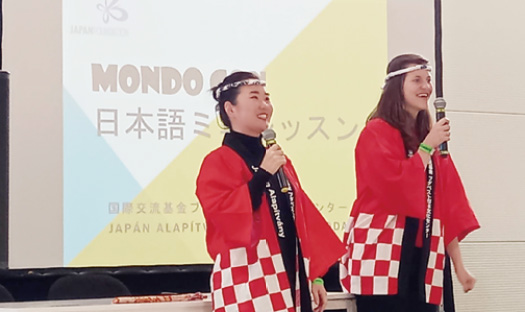
The Japan Foundation, Budapest held a Japanese mini-lesson on a special stage at MondoCon, Hungary's largest anime, manga and game festival
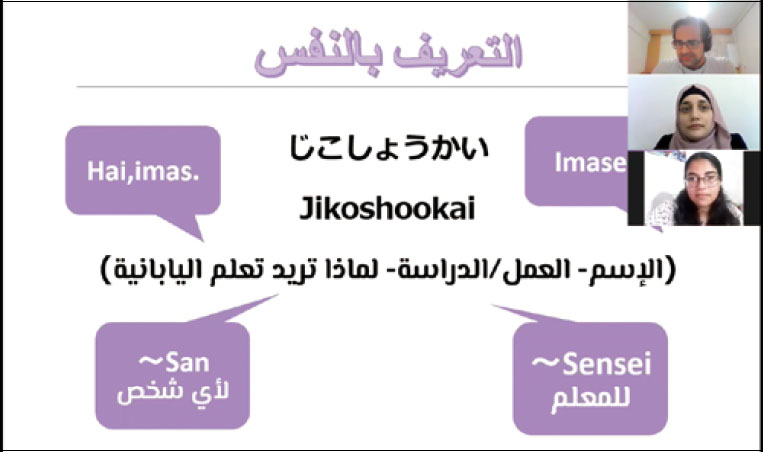
The Japan Foundation, Cairo, provided online learning opportunities for Japanese-language learners in Palestine
Support for Japanese-Language Education Institutions
The Japan Foundation actively supported Japanese-language education institutions around the world striving to deploy their educational activities online, including by purchasing e-books, amidst the prolonged COVID-19 pandemic.
The Japan Foundation also provided special support programs for The JF Nihongo Network (“Sakura Network”) members, which are core Japanese-language educational institutions/organizations located in each country. The Network also welcomed new members, with membership growing to 357 institutions in 102 countries/regions.
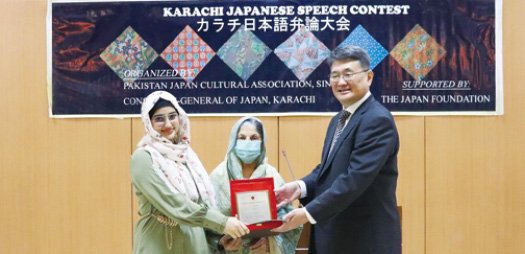
The 36th Karachi Japanese Speech Contest in Pakistan
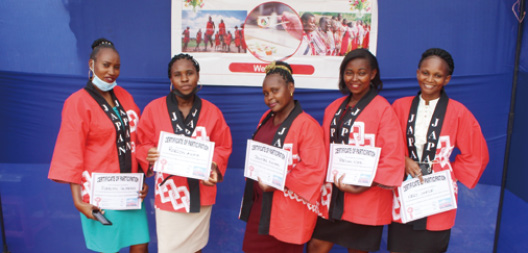
Showcasing Japanese Language and Cultural Lessons - An event held at a primary school in Kenya
Training for Overseas Japanese-Language Teachers
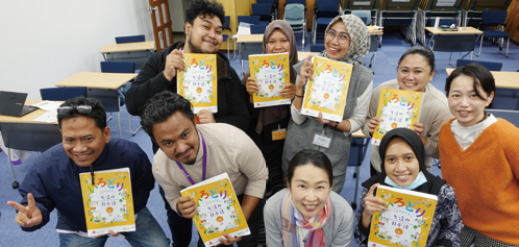
Japanese Teaching Methods Program for teachers of Specified Skilled Workers Candidates conducted by the Japan Foundation Japanese-Language Institute, Urawa
We began a new program of providing online training on multiple topics for overseas Japanese-language teachers. It also used the on-demand teaching materials we tested in the previous fiscal year and provided an opportunity for them to learn theories of teaching methods and basic knowledge needed for guidance. Additionally, we invited Japaneselanguage teachers from institutions and organizations that teach Japanese to people who wish to come to Japan under the Specified Skilled Workers Program and trained them to improve their ability to teach the Japanese necessary for daily life and work.
Initiatives for Overseas Learners
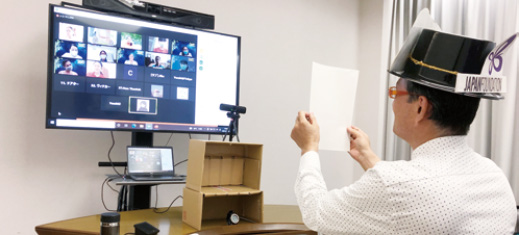
The virtual tour of Japan carried out by the Japan Foundation Japanese-Language Institute, Kansai
To maintain the desire to learn even though visiting Japan remains difficult, we provided various opportunities to learn Japanese language for learners in various countries and regions. Our overseas offices organized Japanese-language lectures, speech contests and Japanese culture experience workshops. The Japan Foundation Japanese-Language Institute, Kansai held online home visits through the cooperation of the local community in addition to online workshops for the Kansai dialect and a virtual tour of Japan.
Japanese-Language Education for Japanese Children Resident Overseas and for the Descendants of Migrants
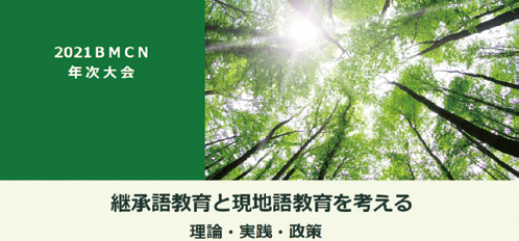
BMCN Annual Conference Overseas Heritage Japanese-Language Education Online Forum
With regards to the Japanese language education environment for the descendants of Japanese nationals who emigrated overseas and children with foreign and Japanese parents, the Japan Foundation co-sponsored part of the annual conference of the Bilingual/Multilingual Child Network (BMCN). We also carried out a survey of issues in the same field and provided DVD set of children's programs and Japanese children's books to heritage Japanese-language education organizations overseas. We also held seminars and built networks in Canada, South Korea, Australia, Singapore, Germany, Brazil and Mexico.
